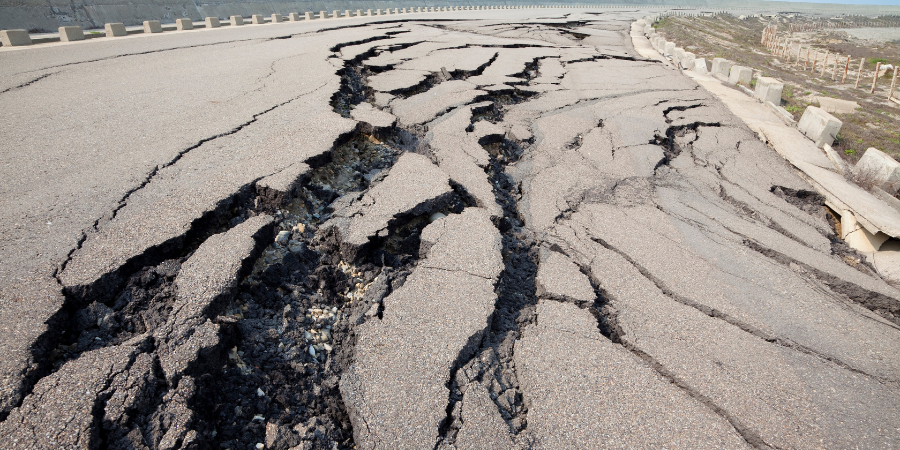Earthquakes are natural phenomena that can have devastating effects on both the environment and human infrastructure. While much attention is often given to the structural damage that buildings endure during seismic events, the impact on plumbing systems is an equally critical concern. Understanding how earthquakes affect plumbing is essential for homeowners, builders, and anyone interested in maintaining the integrity of their property’s internal systems.
In this article, we will explore the relationship between earthquake activity and plumbing systems. We will delve into the mechanics of earthquakes, their prevalence in various regions, and the specific ways they can damage plumbing infrastructure. Additionally, we will discuss the materials most susceptible to earthquake damage, the risks to water heaters, and the potential health hazards associated with compromised sewer lines. The importance of earthquake preparedness for plumbing systems cannot be stressed enough. Read on to learn what you can do to protect your plumbing system.
What An Earthquake Is
An earthquake is a sudden and violent shaking of the ground, often caused by the movement of tectonic plates beneath the Earth’s surface. This movement generates seismic waves that can cause varying degrees of ground shaking, leading to the potential for significant damage to buildings and infrastructure. Earthquakes are measured using the Richter scale, which quantifies the energy released during the event.
Where Earthquakes Are Most Common
Earthquakes are most common in regions along tectonic plate boundaries, such as the Pacific Ring of Fire, which includes countries like Japan, Indonesia, and the west coast of the Americas. These areas are prone to frequent seismic activity due to the constant movement of the Earth’s plates. Other regions, like parts of the Mediterranean and the Himalayan belt, also experience regular earthquakes, though less frequently than the Pacific Ring of Fire.
Impact On Plumbing Systems
When an earthquake strikes, the violent shaking can cause extensive damage to a building’s internal systems, especially its plumbing. The seismic waves can lead to the displacement of pipes, causing them to shift from their original positions. This displacement can result in burst pipes, which can lead to flooding and water damage. Additionally, even minor leaks can compromise the integrity of a building’s structure and contribute to mold growth and other long-term issues.
Plumbing Pipes
Earthquakes pose a significant threat to the integrity of plumbing pipes, which are often rigid and unable to flex with seismic movements. The three primary issues that arise with plumbing pipes during an earthquake are pipe displacement, burst pipes, and leaking pipes.
Pipe Displacement
Pipe displacement occurs when the ground shaking causes pipes to shift from their fixed positions. This movement can disconnect pipes from joints and fittings, leading to leaks or complete breaks. Displaced pipes are especially problematic in multi-story buildings, where gravity can exacerbate the issue by causing water to flow uncontrollably through disconnected sections.
Burst Pipes
Burst pipes are one of the most severe consequences of earthquakes on plumbing systems. The intense pressure exerted by seismic waves can cause pipes to crack or rupture, leading to significant water loss and damage. Burst pipes can flood entire sections of a building, causing structural damage and creating an environment conducive to mold and mildew growth.
Leaking Pipes
Even if pipes do not burst during an earthquake, they may develop small leaks that can go unnoticed initially. Over time, these leaks can cause significant water damage and contribute to the deterioration of building materials. Persistent leaks can also lead to higher water bills and unnecessary water wastage, making early detection and repair crucial.
Which Pipe Material Is Most Affected
Different pipe materials react differently to seismic activity, with some being more susceptible to damage than others. The three most common materials used in plumbing—copper, PVC, and galvanized steel—each have unique vulnerabilities.
Copper
Copper pipes, while durable and resistant to corrosion, can be prone to cracking under the stress of seismic activity. Their rigidity makes them less able to absorb the shock of an earthquake, leading to potential breaks at joints and connections.
PVC
PVC pipes are more flexible than copper pipes, which can make them more resilient during an earthquake. However, their plastic composition can still be prone to cracking or breaking under intense pressure. Additionally, PVC joints, which are typically glued together, can come apart during severe shaking.
Galvanized Steel
Galvanized steel pipes, commonly found in older buildings, are particularly susceptible to earthquake damage. Their rigidity and susceptibility to corrosion make them likely to crack or burst under seismic stress. The weight of galvanized steel pipes also adds to the risk, as the shaking can cause significant displacement and damage.
Risks To Water Heaters
Water heaters are another critical component of a building’s plumbing system that can be severely affected by earthquakes. These large, heavy appliances can become dangerous if not properly secured.
Potential Damages
During an earthquake, water heaters can tip over or become dislodged from their mounts, leading to broken gas lines, water lines, and even fires. The movement of the water heater can cause pipes to break, leading to flooding and significant water damage. Additionally, if the water heater falls, it can create a hazardous environment, particularly if it involves a gas leak.
How To Prevent Water Heater Damage
To prevent water heater damage during an earthquake, it is essential to secure the appliance properly. Installing seismic straps can help keep the water heater in place during shaking. These straps anchor the water heater to the wall, reducing the risk of it tipping over. Additionally, ensuring that gas and water connections are flexible can help absorb the movement and reduce the likelihood of breakage.
Risks To Sewer Lines
Sewer lines, often running underground, are not immune to the effects of earthquakes. The shifting ground can cause significant damage to these essential components of a plumbing system.
Potential Damages
Earthquakes can cause sewer lines to crack, collapse, or become disjointed. These damages can lead to blockages, backflows, and sewage leaks, creating unsanitary conditions and requiring extensive repairs. Cracked sewer lines can allow tree roots to infiltrate the system, further exacerbating blockages and potential damages.
Health Risks
Compromised sewer lines pose serious health risks due to the potential for raw sewage to seep into the ground or back into the building. Exposure to raw sewage can lead to various health issues, including gastrointestinal illnesses, skin infections, and respiratory problems. It is crucial to address any sewer line damage promptly to avoid these health hazards and ensure the safety of the building’s occupants.
Looking To Protect Your Plumbing From Seismic Activity?
In conclusion, understanding the impact of earthquake activity on plumbing systems is essential for maintaining a building’s integrity and safety. From the displacement and bursting of pipes to the risks posed to water heaters and sewer lines, earthquakes can cause significant and costly damage to plumbing infrastructure. Regular inspections, proper maintenance, and the use of appropriate materials can help mitigate these risks and ensure that plumbing systems remain functional and safe during and after seismic events.
Proactive measures, such as securing water heaters with seismic straps and choosing flexible pipe materials, can prevent major issues and reduce repair costs. Home and building owners should also be aware of the signs of plumbing damage following an earthquake and seek professional assistance for thorough inspections and repairs.
If you live in an earthquake-prone area, even in those where the activity is not felt, such as Irvine, and are concerned about the impact on your plumbing system, contact a professional plumber today. At OVC Plumbing and Drain, we specialize in earthquake preparedness and can help you safeguard your plumbing infrastructure. Call us now to schedule an inspection and ensure the safety and longevity of your plumbing.






